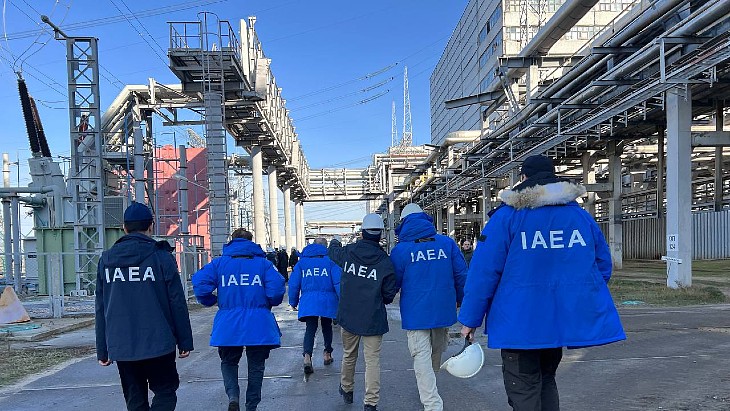He said that IAEA staff at Zaporizhzhia nuclear power plant have heard explosions every day over the past week at varying distances from the plant, several times sounding near the site "presumably from outgoing artillery fire", according to the team at the site. An air raid warning was also heard on Wednesday.
The agency's experts have continued to carry out walkdowns of the site and "did not observe any concerns related to nuclear safety", although they did not have access to all areas, including some parts of the turbine halls. In the director general's update on the situation he added "the IAEA is aware of social media reports and images related to the presence of troops and vehicles inside one of the turbine halls at the ZNPP. The presence of such vehicles in ZNPP turbine halls has been reported in previous updates by the Director General".
Maintenance on parts of the safety system of the first unit at the plant - which has six units and has been under Russian military control since early March 2022 - has not yet resumed after it was postponed last week, the update added.
"For more than two years now, nuclear safety and security in Ukraine has been in constant jeopardy. We remain determined to do everything we can to help minimise the risk of a nuclear accident that could harm people and the environment, not only in Ukraine," Grossi said.
"So far, we have managed to stabilise the situation but, as we have seen again this past week, nuclear safety and security in Ukraine remains extremely vulnerable. We cannot afford to let our guard down at any time."
Elsewhere in Ukraine the subcritical Neutron Source installation, located in the Kharkiv Institute of Physics and Technology, lost its external power as a result of shelling and is now relying on emergency diesel generators. Radiation levels remain normal, the IAEA said it had been informed. The facility, which produced radioisotopes for medical and industrial applications up until the start of the war, was transferred to a deep sub-critical state at the start of the conflict, when it also suffered damage from shelling.
"Due to the nature of this facility, which has been shutdown since the start of the armed conflict, we do not currently anticipate a situation that could have any implications to public safety. But, clearly, leaving a nuclear installation without off-site power is not normal and once again demonstrates the risks from this war to nuclear safety," Grossi added.
At Ukraine's other nuclear facilities the IAEA teams have reported that nuclear safety and security continues to be maintained, although there have been regular air raid alarms.















